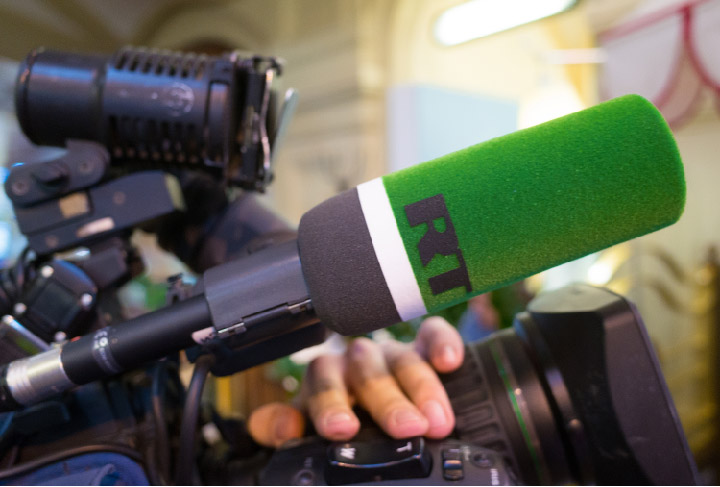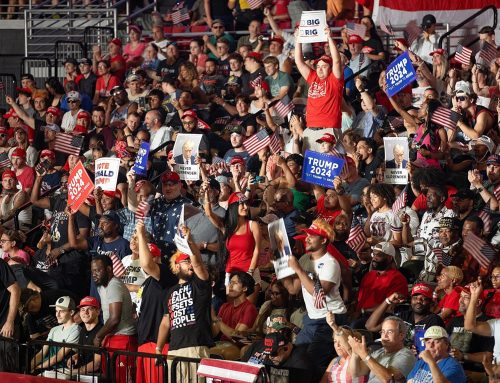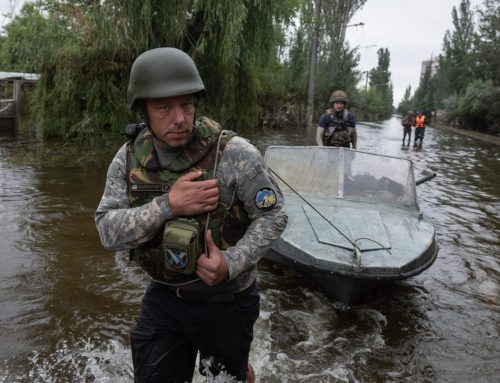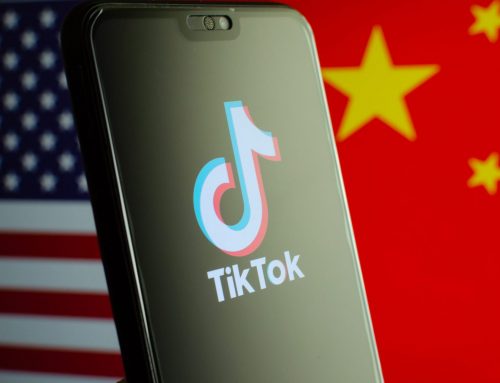Last week, Russian state media continued to highlight incidents of police brutality during the protests in Colombia and related human rights concerns, though the volume of such content continued to taper off from its peak the first week of May. (On Twitter, there was a roughly 55 percent decrease in Russian mentions of Colombia week over week.) However, the Russian embassy in Colombia’s tweet of a press release denying any Russian interference in the protests received over 20,000 likes and 8,000 retweets—an exceptionally unusual amount of engagement for a diplomatic statement. The Russian embassy in Colombia also saw a nearly 75 percent increase in followers last week. In last week’s coverage of the Israeli-Palestinian conflict, Russian state media maintained criticism of Israel and international support for the country, highlighted the civilian toll (they focused mainly on Palestinian civilians, though there were isolated examples of coverage of Israeli civilians), and covered global demonstrations about the conflict, particularly those that involved reported violence. Finally, as per usual, Russian state media and diplomats highlighted positive developments related to Sputnik V, including vaccine shipments and international enthusiasm for the Russian vaccine. They also sought to draw direct links between European countries’ decisions to use Sputnik V and the lifting of pandemic restrictions in those countries, while again alleging that political bias is hindering the EU’s approval of the vaccine. At the same time, media continued to emphasize adverse reactions to Western vaccines and criticize Western coronavirus responses.
Chinese diplomats and state media on Twitter last week continued to message that the United States is not an impartial actor in the Israeli-Palestinian conflict. Monitored accounts stated that United States is hypocritical for promoting human rights in Xinjiang while remaining mute on human rights abuses in Palestinian territories. Chinese diplomatic officials also used the conflict as an opportunity to promote their four-point proposal to deescalate tensions. Following the ceasefire brokered by Israeli and Palestinian authorities, Chinese diplomats and state media accounts promoted a two-state solution to the conflict and welcomed Israeli and Palestinian officials to China for diplomatic talks. China also promoted its humanitarian aid for the Palestinians as well as the distribution of 200,000 Chinese-produced Covid-19 vaccines for the territories. As part of its months-long effort to discredit the BBC, Chinese diplomats and state media used recent revelations that Martin Bashir’s 1996 interview with Princess Diana had fallen short of integrity and transparency standards to criticize the British media outlet. This included drawing a direct comparison between how Princess Diana was deceived by Bashir to recent BBC coverage on Xinjiang and other points of friction in U.K.-China relations. The central claim was that the BBC’s Xinjiang coverage was “fabricated” and “disinformation,” with the Chinese Ministry of Foreign Affairs demanding an apology to the Chinese people. In coronavirus coverage, Chinese diplomats used President Xi Jinping’s attendance at the Global Health Summit as an opportunity to promote China’s desire to cooperate on future anti-pandemic efforts. This included touting the financial capital, humanitarian aid, and vaccines that China has donated to developing countries and exported to others. Finally, Chinese diplomats used the history of racism and xenophobia in the United States against African Americans, Asian Americans, and Muslims to promote a message that the United States is no longer the world’s “beacon of democracy.” The seeming intent was to push back against calls to boycott the 2022 Beijing Winter Olympics and to poison the well for further inquiries into labor and human rights issues in China.
Like their counterparts in Moscow and Beijing, Tehran-affiliated diplomats and state media accounts focused, for the third consecutive week, on the Israeli-Palestinian conflict. Many tweets celebrated the Palestinians’ “victory” over the “Zionist regime,” and PressTV reported on an effusive statement from Hamas thanking Iran for providing money and military support, as well as on Hamas’ declaration of victory. PressTV also invited on London-based antisemitic conspiracy theorist Gilad Atzmon as a “political commentator” to discuss why the ceasefire is a defeat for Israel. Atzmon describes himself as a “proud, self-hating Jew,” and is generally disavowed by even the most radical European and American anti-Zionist groups. PressTV also suggested that Israel and the West fear Palestinian elections because of the strength and popularity of Hamas, while the supreme leader described Israeli responses to “the Palestinian uprising” as “shameful,” “idiotic,” and having “provoked the public opinion of the world against itself.” On the issue of Iranian elections, Iran’s ambassador to Azerbaijan, S.A. Mousavi, taunted the former U.S. Secretary of State, Mike Pompeo, in a tweet stating, “If I were #Pompeo, with my boss’ historic mess in a Presidential election, I’d rather abstain from any sort of political or election-related commenting about any country in the world. #USElections2020 #CapitolCoup.”
The views expressed in GMF publications and commentary are the views of the author alone.








